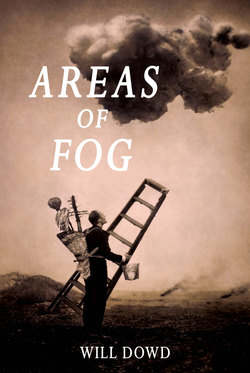Читать книгу Areas of Fog - Will Dowd - Страница 20
ОглавлениеI FIND IT hard, impossible really, not to see the weather on my birthday as God weighing in on things. I turned thirty on Wednesday. It rained heavily.
The weather this week was more of the same. Despite several days that thought about being warm, the winter cold kept reasserting itself, returning in the night to paint the town with a layer of black ice that had radiologists working overtime. There were bitter winds, night terror commutes, and Thursday flurries that served no discernible purpose.
One doesn’t usually hear the word “evil” associated with the weather, but New Englanders have begun resorting to Manichaean language.
And who can blame us? Winter is like a maniacal mayor who keeps extending his term limits.
Perhaps the word “evil” is too strong for the weather, but how else can we describe the spiritual acid that is late winter rain?
I suppose we should look to the Japanese, whose poetry is the greatest repository of written weather in existence, a fact that has somehow escaped the notice of weathermen, who almost never incorporate haiku into the forecast.
The Japanese have a word for winter confinement (fuyugomori), moonlit night (tsukiyo), and shimmering summer air (kagerō).
They also have a word for late winter rain—shigure.
My favorite use of shigure comes from the little-known haiku poet Shida Yaba (1662-1740), who wrote:
In this floating world
a voice calls—
winter shower
Yaba composed these lines on his deathbed. It was customary for haiku poets to jot down—or at least dictate—a haiku in their final moments of life.
I enjoy writing to a deadline as much as anyone, but talk about pressure. Imagine trying to concentrate on leaving this earthly plane while a crowd of students, eager with brush and paper, leans in around you, listening intently to your labored breathing, hoping to net a flutter of brilliance on the wind of your final exhalation.
Truth be told, the lines above are actually Yaba’s second-to-last haiku. His last haiku was just plain bad, so his students—and now his readers—pretend it never happened.
We have to look out for each other.
